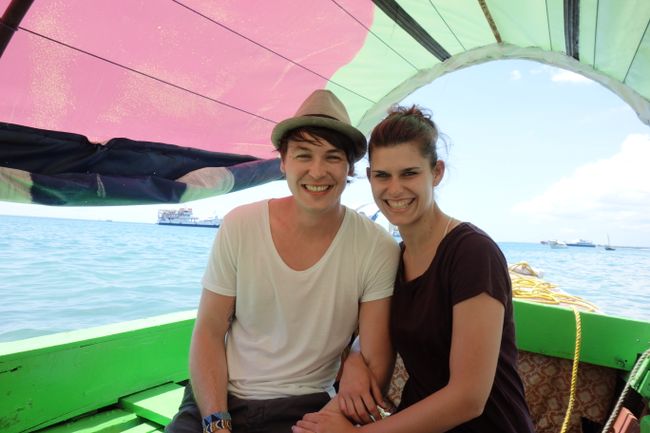Peru - Road trip from Lima via Arequipa and Cusco to Lake Titicaca
ที่ตีพิมพ์: 07.12.2017
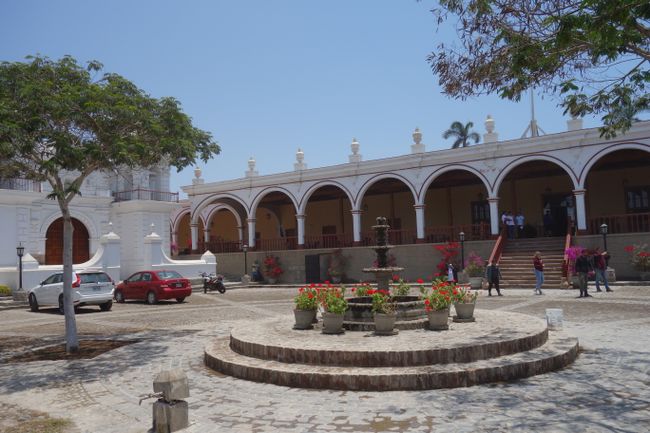
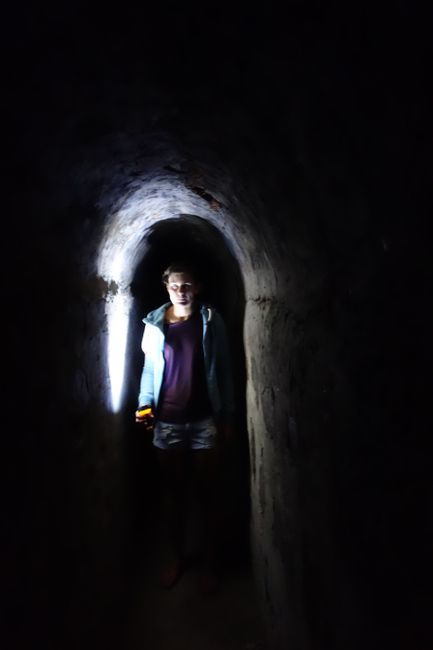
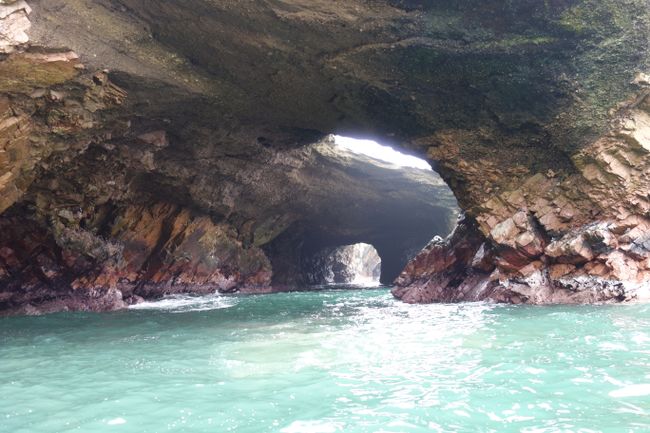
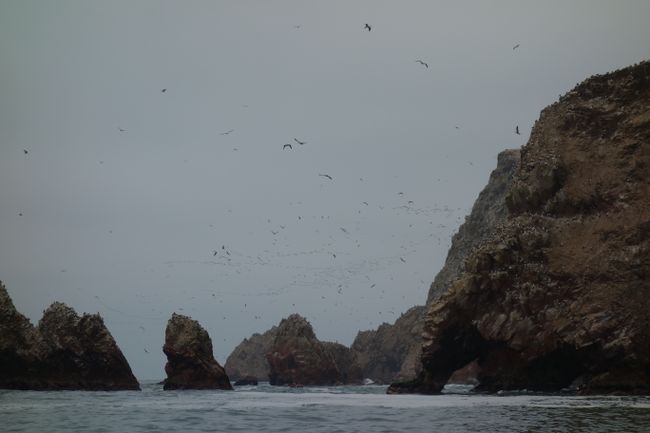
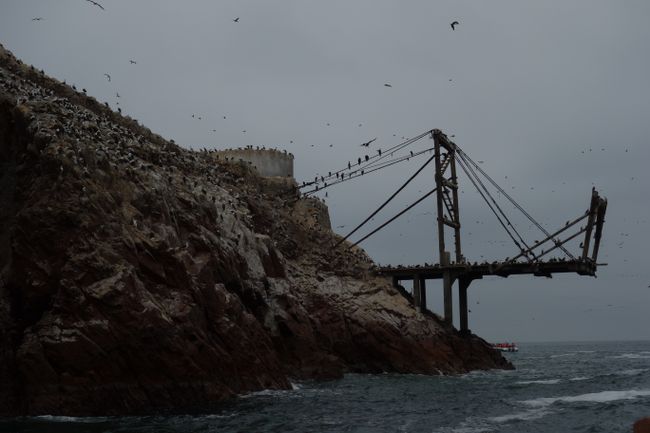
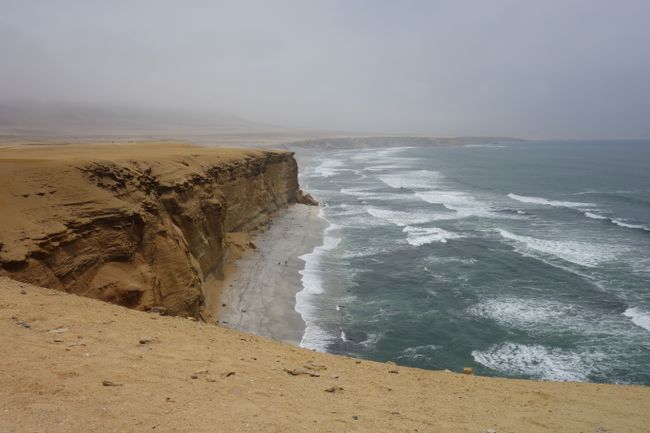

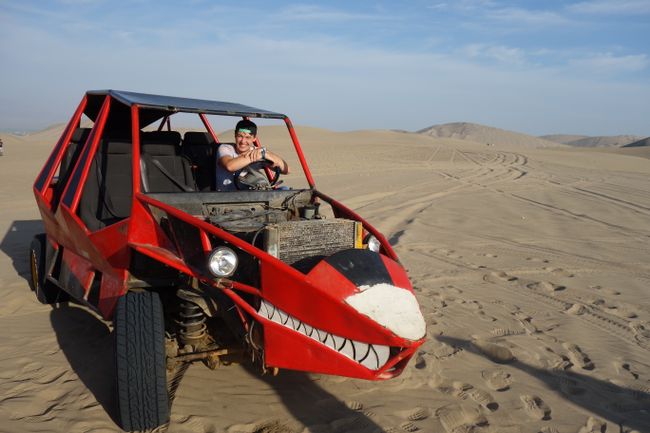
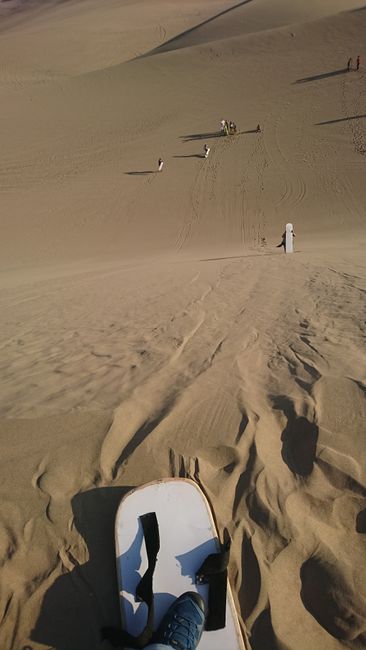
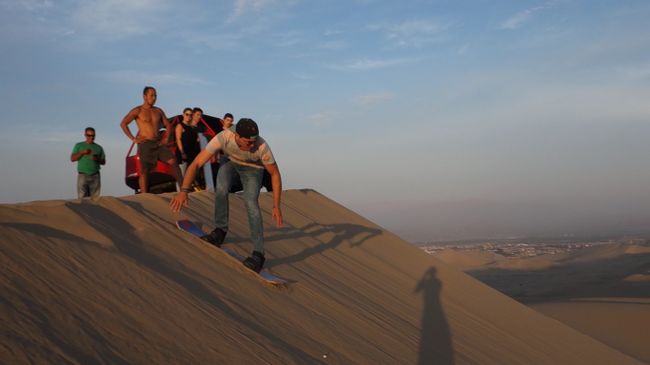
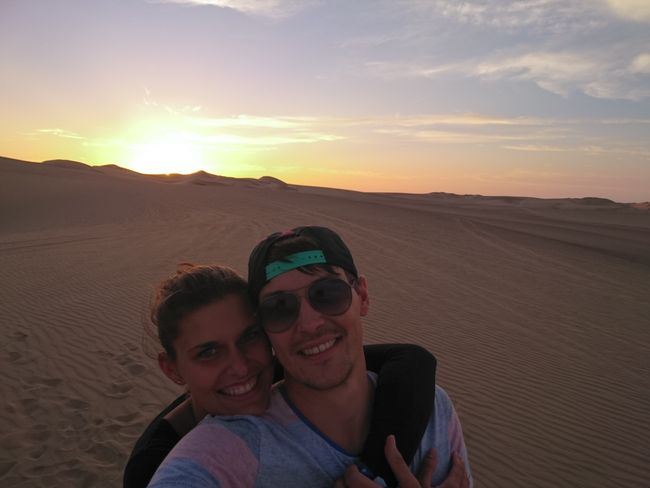
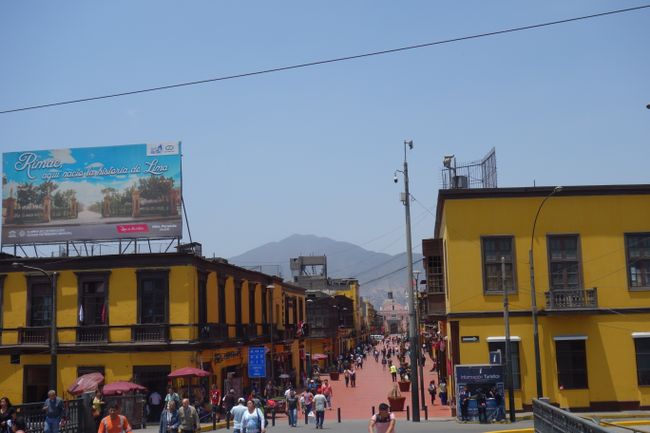
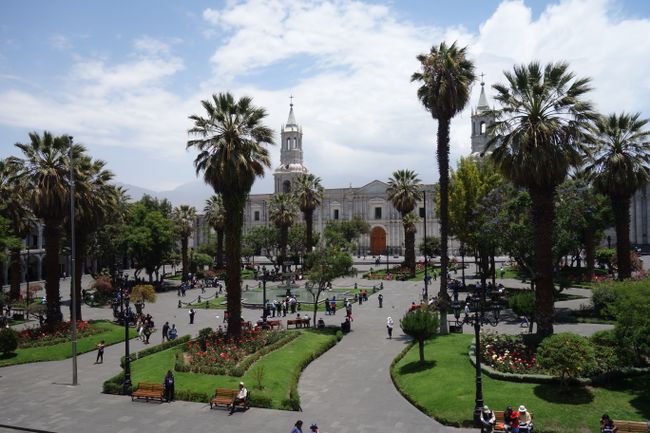
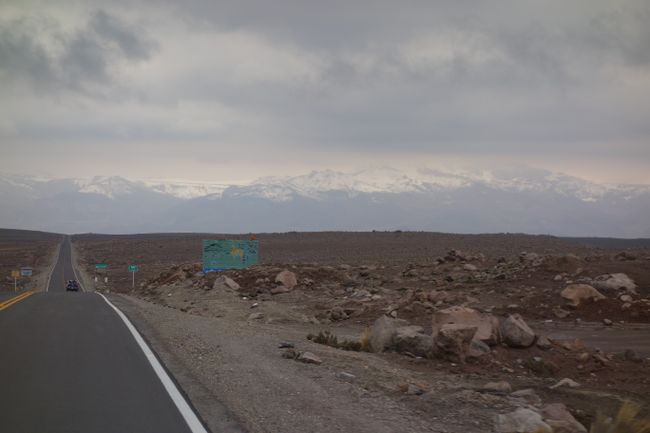
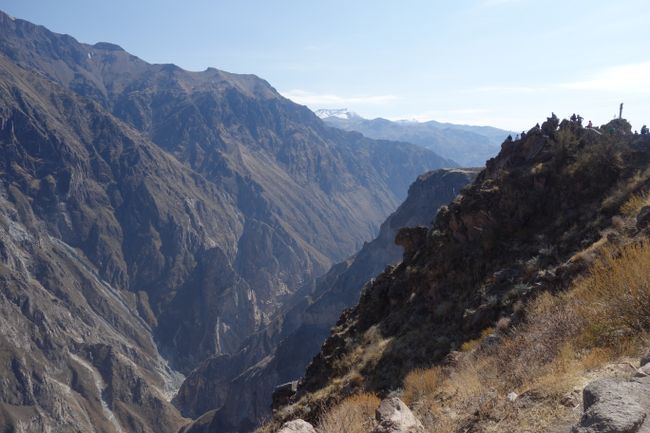
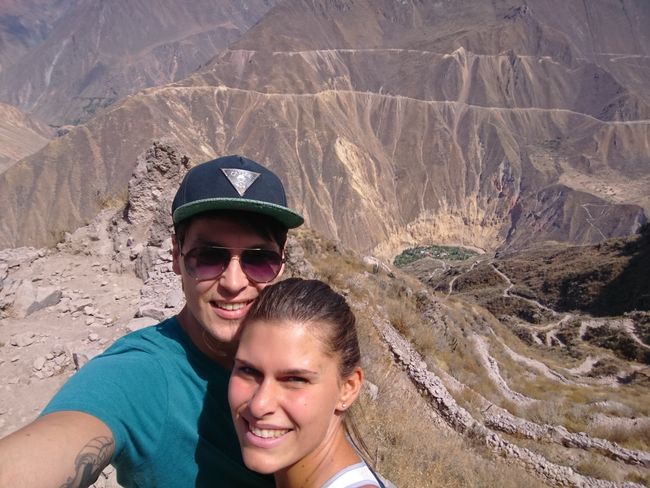
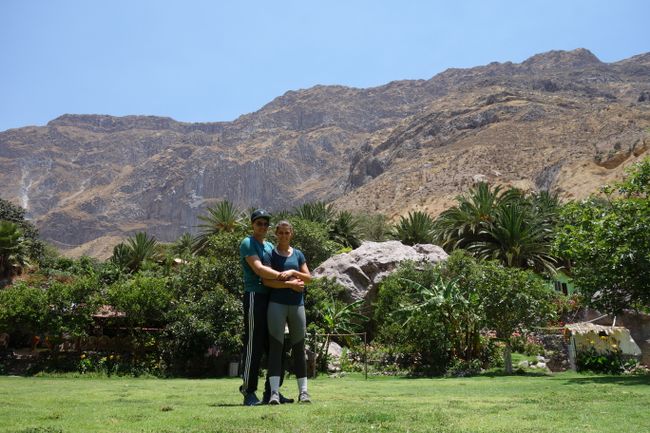
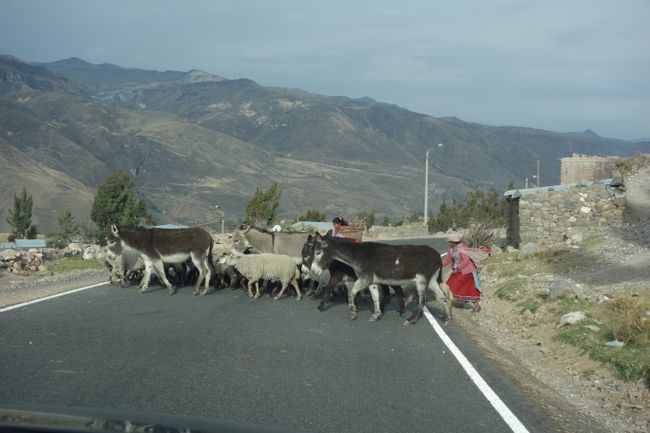
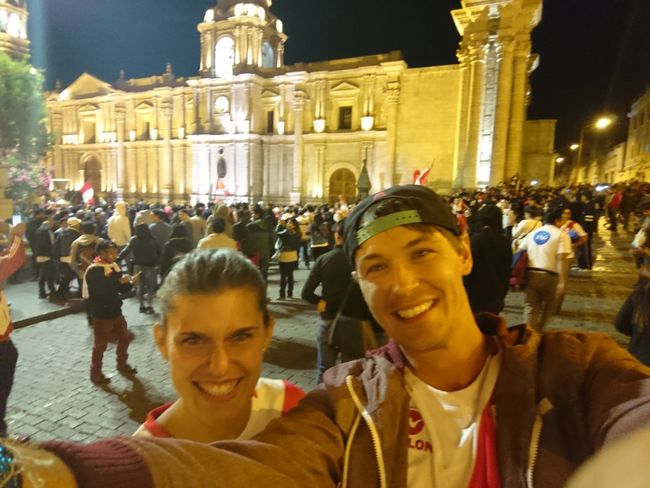
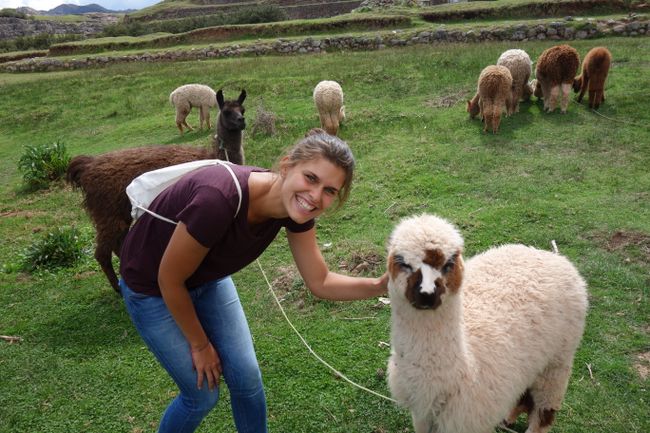
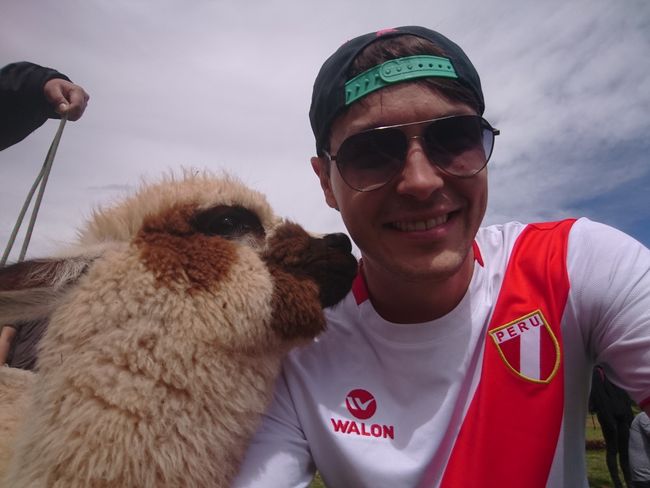
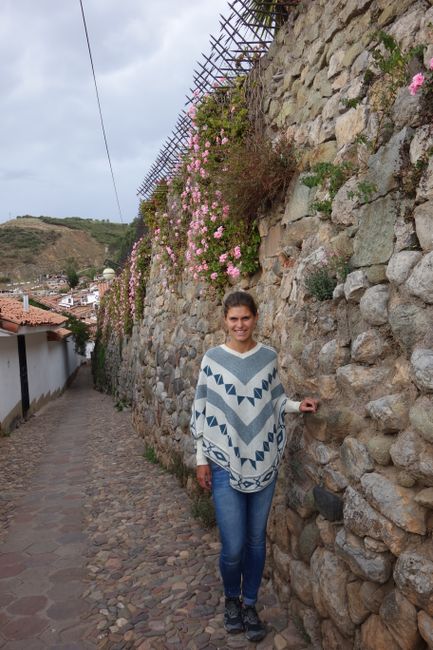
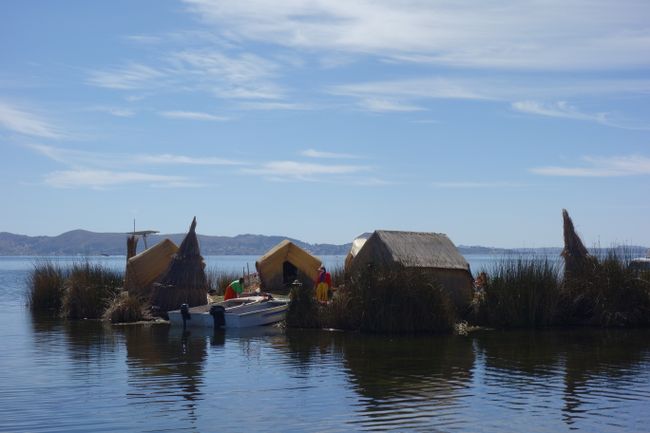
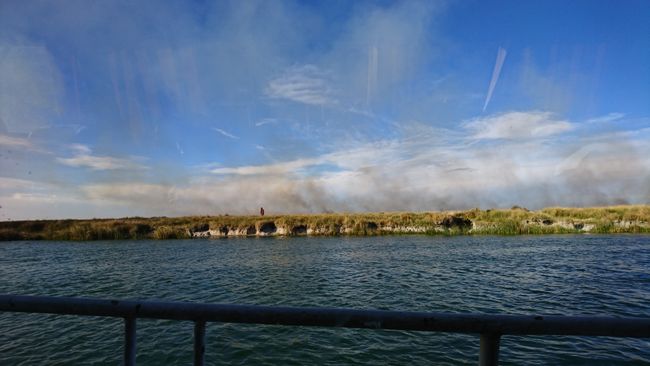
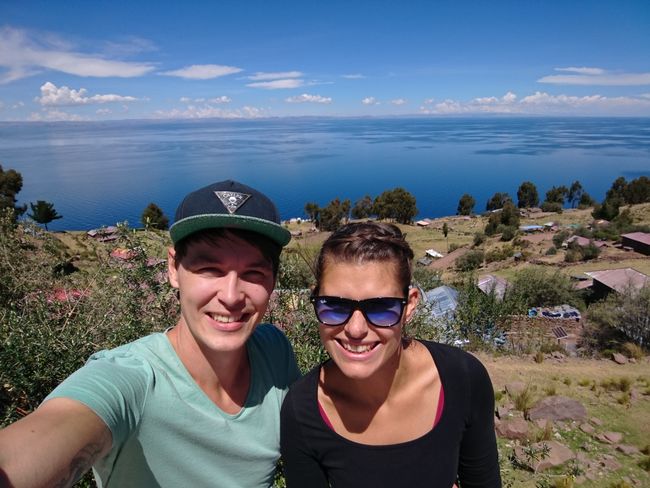
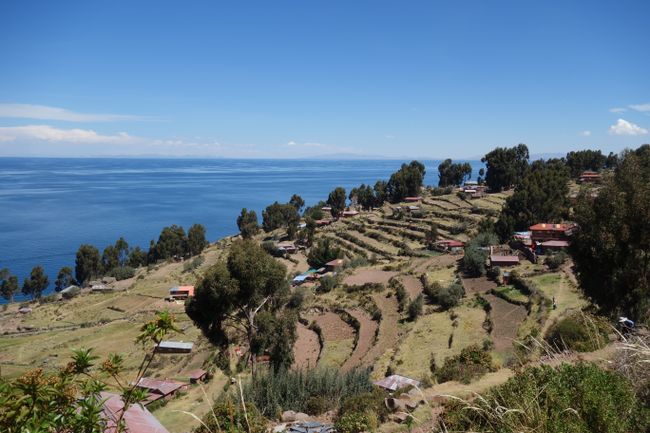
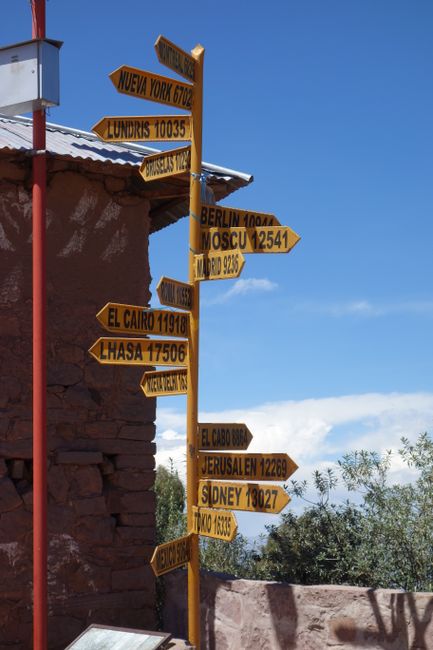
สมัครรับจดหมายข่าว
We land in Lima in the middle of the night (flight delayed). Luckily, we have pre-arranged transfer (had to wait a bit) and hop directly into the car to the hostel. On the way, our driver gives us a midnight city tour. We go to bed at 2 am, looking forward to 3 and a half hours of sleep.
Peru Hop bus arrives at our hostel, way ahead of schedule (6 am instead of 6:30 am). We have to hop on our transportation without the planned breakfast. We don't go up to the Christ statue, because another bus fell off the cliffs just before and it's prohibited for buses to go there. Our guide tells us about Peruvian culture and the ongoing dispute with Chile. On the way to Paracas, we make several stops. The impressive Hacienda San Jose is particularly interesting, as it can be associated with the history of slave trading. On a short tour, we can explore the numerous underground tunnels ourselves. It's hard to imagine without flashlights, but they used to carry candles. We continue by bus and have to cross a river because the bridge hasn't been repaired since a strong earthquake in 2007. In Paracas, we have some Ceviche (a national dish) and we also try the famous Inca Kola (gummy bear juice). After some time by the hotel pool, we sneak out again and try the Pisco Sour (national cocktail).
Unfortunately, we can't sleep in the next morning, as we join a tour to the Ballestas Islands. The islands off the coast are also known as the 'Poor Man's Galapagos', as there is a high diversity of species, although a comparison to the Galapagos is far-fetched. Countless birds, penguins, and sea lions (including babies) frolic on the rock formations in the sea. Here and there, we see ruins from the guano mining era, but today there are only tourists at the islands, apart from a few scientists and local fishermen. Our next stop is the desert oasis of Huacachina. After lunch, we hop into a desert buggy and the driver speeds through the dunes quite dangerously. Then we have some time for sandboarding. After some initial hesitation (we are not winter sports enthusiasts), it gets better and in the end, Stephan zooms down the big dune with a few others. By the way, falling on sand also hurts like hell (of course, we have videos of falls)! After that, we enjoy the sunset in the desert and make our way back to Lima. As usual, we check into our hostel in Lima in the middle of the night because our bus had a flat tire.
The next morning, we stroll leisurely through the city center and spontaneously join one of the many 'Free Walking' tours. Of course, they are not really free and during the tour, we get enough information about the expected tip amount. After the tour, we hop into an Uber to the airport and are transported to Arequipa. Our hostel host provides us with coca tea and we fall tired into bed.
In Arequipa, we also do a Free Walking tour and meet familiar faces from Lima. It seems that everyone is following roughly the same route. Apart from the usual squares and buildings, Arequipa has some interesting churches with mixed religious symbolism to offer. Otherwise, it looks like any other colonial city in South America to us. As the decisive qualifying match for Peru for the World Cup in Russia is approaching, we spontaneously buy jerseys in a store and, of course, have number 14 printed on them (Pizarro, oho...). For our trip to the Colca Canyon, we pick up a rental car from Europcar and once again, we get upgraded from a crummy car to an SUV. :) We make our way to the canyon somewhat slowly. Outside of the city traffic, we drive through beautiful flora and fauna until we reach Yanque, where we have already booked a hotel. Unfortunately, nobody can remember our reservation anymore (admittedly, it was ages ago) and after some back and forth, we are assigned a double room instead of our dorm booking. It doesn't really bother us. At the restaurant, we have a juicy alpaca steak, and then we go to bed.
The next morning, we set off very early to be in time for the Mirador Cruz del Condor. We park our SUV among the countless tour vans and chill at one of the deepest canyons in the world. However, the viewpoint doesn't really live up to its name today; no condors in sight. We continue to Cabanaconde and park our car at the central square. With gestures and broken Spanish, we get an explanation of the starting point for a descent into the Colca Valley. Then we walk through cornfields and are certain that we have lost our way. Suddenly, we come across a checkpoint and our tickets are checked. So we weren't completely off track. According to different people, the time for a descent is estimated between 1 and 3 hours. We need about 100 minutes for the rocky descent to the Sangalle oasis in the valley. Down there, we each have a Coke and start the arduous climb back up (a trip to the canyon river ends up composting). We definitely have too little water with us, the sun is scorching, and due to numerous regeneration breaks, we can hardly make progress. Shortly before dying of thirst, we reach the edge of the gorge (1200 meters in altitude and 3 hours later) and stock up on water and ice at the first store we find. On the way back to Arequipa, Stephan stretches the speed limits a bit so that we are back in time for the game. We are stopped by the police once, but because we don't speak Spanish, we are allowed to continue driving. Finding a place to park the car for the night turns out to be very complicated and in the end, we rush with a burger in our mouth into a restaurant on the main square just after kickoff. The Peru vs New Zealand game is suspenseful, but after a 2-0 victory, it's clear that Peru is going to the football World Cup after a 36-year hiatus. Fans storm the poorly secured main square (why was it even cordoned off?) and the celebration begins.
The next day, we fly to Cusco. We want to acclimatize to the altitude before the Machu Picchu trek. We test the Peruvian postal service (weak), buy baby alpaca sweaters, and wander through the old town. Our super nice Airbnb host also offers Free Walking tours, so we learn more about the city of Cusco during the Inca era.
After the Inca Trail (separate blog post) and a short two-day rest in Cusco, we head to Puno on Lake Titicaca with Peru Hop again. Despite having a mediocre hotel, we decide to stay in Puno for two nights. On the first day, we book a tour to the floating islands of Uros and Taquile. The Uros live on tiny reed islands on the lake and nowadays are quite dependent on tourism. Back in Puno, we have dinner at the German-French-Peruvian restaurant La Table del Inca and are thrilled. Highly recommended if you ever happen to be in Puno. From Puno, we continue by bus to Copacabana and thus cross the border to Bolivia.
สมัครรับจดหมายข่าว
คำตอบ
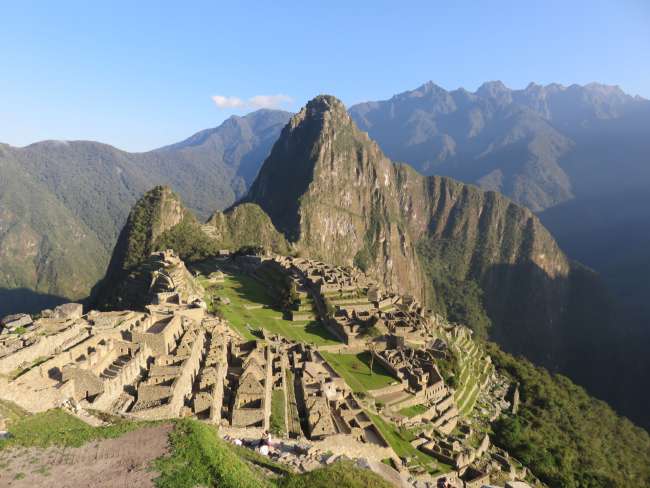
รายงานการเดินทาง เปรู

